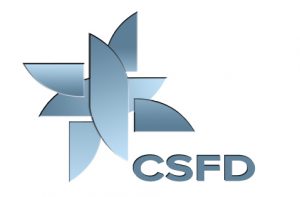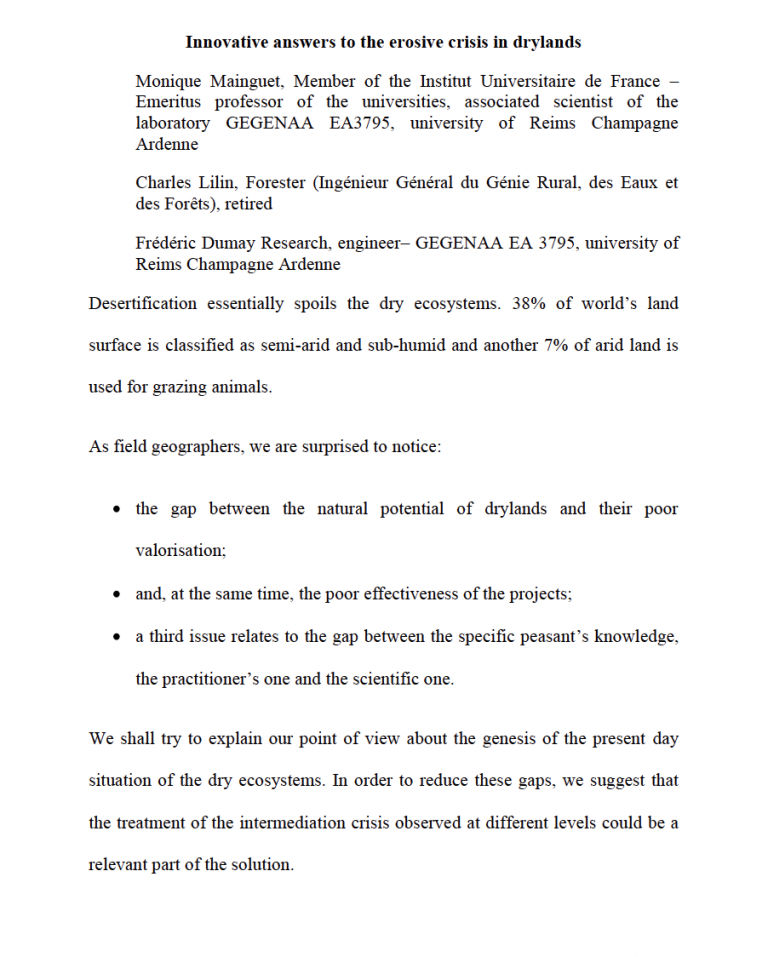This presentation tackles first the genesis of the erosive crisis in drylands. In these ecosystems the dominant mineral forms, specific biodiversity, the rich but vulnerable landscapes patrimony have fostered the creation of ingenious and resilient agro-systems, high levels of human and cattle mobility which enable adaptation to drought: nomadic or semi nomadic cattle rearing.
Then, the paper shows that adoption of the western model of development, based on high levels of inputs and on mechanisation has boosted marginalisation of both drylands and their societies. The disturbances induced overcome the regulation capacity of local societies in these drylands.
The first foreign answer “vis-à-vis” the erosion crisis is based in the introduction of bureaucratic and standardised production line similar to the industrial lines of cars production, never called into question. Getting access to financial resources became the main concern, leading to short-term thinking.
The second generation of projects is based on local knowledge putting the farmers in the heart of the project-with an obsession: gaining visible and fast results in contradiction with the long time necessary to develop knowledge based on experience. Finally the authors explore different ways to be more efficient in the fight against desertification mainly through the improvement of the articulations between the knowledge of scientists and the knowledge of farmers and practitioners, by a persevering effort to strengthen links and bridge disconnections.
Decision-makers do no more find the time for reading reports.
We need cleverness if we want to catch the attention of stressed politicians and of practitioners who are unable to read a landscape or to revitalise the traditional farmers’ knowledge or to valorise fundamental research. The scientist who wants the decision-makers to take into account the results of his research has to dedicate time to tackle the problems related to the dissemination and the valorisation of scientific knowledge in today’s conditions.


